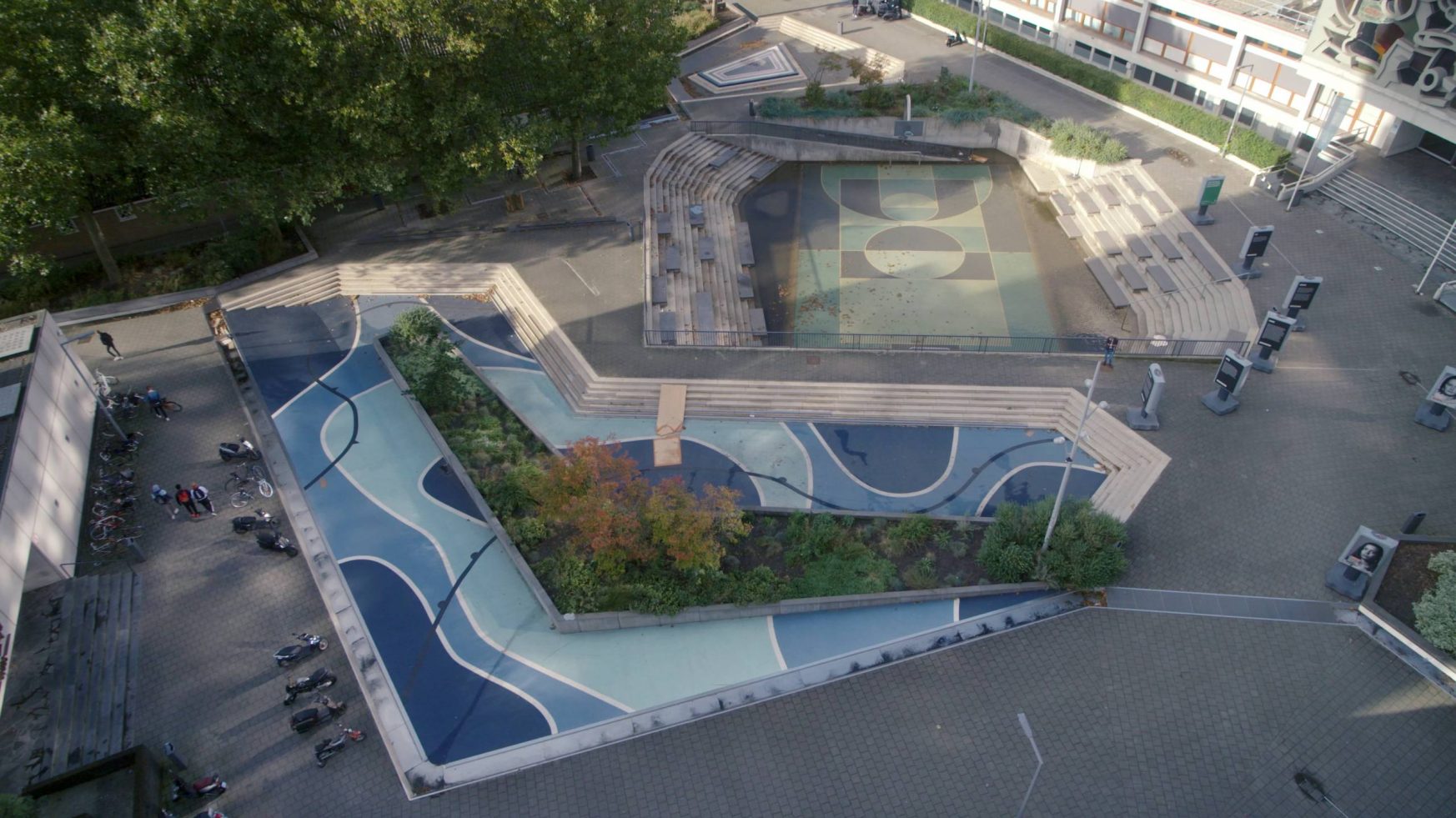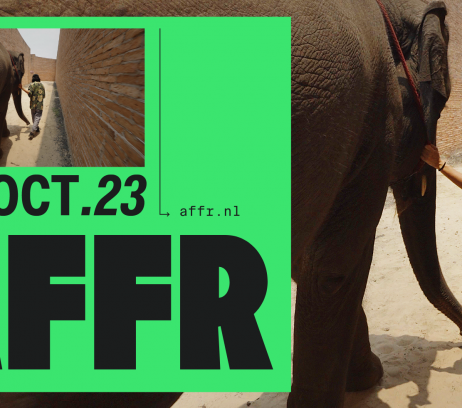Rotterdam Speciaal: Drinkwater en droge voeten
Zijn drinkwater en droge voeten nog wel vanzelfsprekend in de toekomst? Zijn onze waterpeilbeheer en drinkwatervoorzieningen wel bestand tegen klimaatverandering? Aan de hand van de films Building Visions en The Needles of the Meuse, gaat journalist Harm Ede Botje in gesprek met experts van een drinkwaterbedrijf, waterschap en een landschapsarchitect over de uitdagingen van klimaatverandering. Nederlandstalig.
Will we take potable water and dry feet for granted in the future? Is our management of water levels and water supplies a match for climate change? On the basis of the films Building Visions and The Needles of the Meuse, journalist Harm Ede Botje talks to experts from water companies and a landscape architect about the challenges of climate change. Program in Dutch.
Building Visions – Director: Diego Breit (’26)
Stad en natuur worden weleens als elkaars tegenpolen gezien. In deze documentaire laten ontwerpbureau De Urbanisten en experts van het Natuurhistorisch Museum Rotterdam en Bureau Stadsnatuur een ander geluid horen: de stad als natuurlijke habitat voor flora en fauna.
City and nature are sometimes seen as each other’s opposites. In this documentary, design office De Urbanisten and experts from the Natural History Museum Rotterdam and Bureau Stadsnatuur, offer another perspective: the city as a natural habitat for flora and fauna.
The needles of the Meuse – Director: Moniek van de Vall (’42)
Bijna twee eeuwen voldeden de handbediende, houten naaldstuwen van de Maas in Noord-Frankrijk om de waterstand te regelen. Het steeds sneller wisselende waterpeil doet ze de das om. Deze hartverwarmende ode aan de naaldstuwen – en hun beheerders – biedt een verrassende blik op het complexe ecosysteem van de regenrivier.
For almost two centuries, manually operated wooden needle weirs could regulate water levels in the Meuse in northern France. Water levels that change increasingly rapidly now herald their disappearance. This moving ode to the needle weirs – and their operators – offers a surprising glimpse of the complex ecosystem of the rain-fed river.
Kies tijdstip
- filmspecial
Zijn drinkwater en droge voeten nog wel vanzelfsprekend in de toekomst? Zijn onze waterpeilbeheer en drinkwatervoorzieningen wel bestand tegen klimaatverandering? Aan de hand van de films Building Visions en The Needles of the Meuse, gaat journalist Harm Ede Botje in gesprek met experts van een drinkwaterbedrijf, waterschap en een landschapsarchitect over de uitdagingen van klimaatverandering. Nederlandstalig.
Will we take potable water and dry feet for granted in the future? Is our management of water levels and water supplies a match for climate change? On the basis of the films Building Visions and The Needles of the Meuse, journalist Harm Ede Botje talks to experts from water companies and a landscape architect about the challenges of climate change. Program in Dutch.
Building Visions – Director: Diego Breit (’26)
Stad en natuur worden weleens als elkaars tegenpolen gezien. In deze documentaire laten ontwerpbureau De Urbanisten en experts van het Natuurhistorisch Museum Rotterdam en Bureau Stadsnatuur een ander geluid horen: de stad als natuurlijke habitat voor flora en fauna.
City and nature are sometimes seen as each other’s opposites. In this documentary, design office De Urbanisten and experts from the Natural History Museum Rotterdam and Bureau Stadsnatuur, offer another perspective: the city as a natural habitat for flora and fauna.
The needles of the Meuse – Director: Moniek van de Vall (’42)
Bijna twee eeuwen voldeden de handbediende, houten naaldstuwen van de Maas in Noord-Frankrijk om de waterstand te regelen. Het steeds sneller wisselende waterpeil doet ze de das om. Deze hartverwarmende ode aan de naaldstuwen – en hun beheerders – biedt een verrassende blik op het complexe ecosysteem van de regenrivier.
For almost two centuries, manually operated wooden needle weirs could regulate water levels in the Meuse in northern France. Water levels that change increasingly rapidly now herald their disappearance. This moving ode to the needle weirs – and their operators – offers a surprising glimpse of the complex ecosystem of the rain-fed river.










